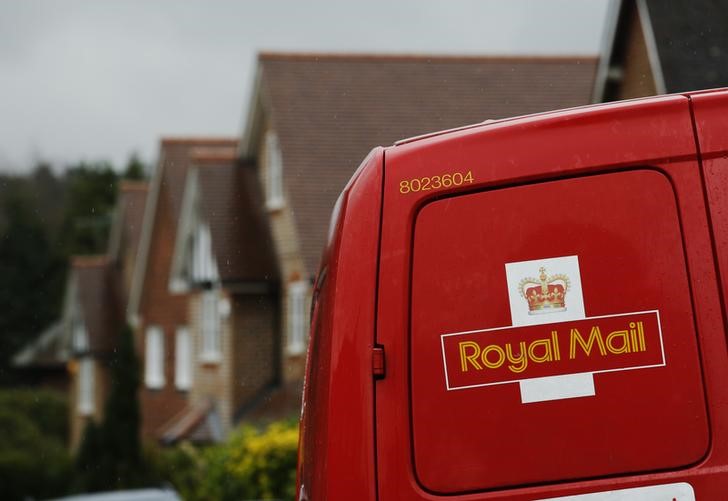By William James
LONDON (Reuters) - Britain will sell its 30 percent stake in postal operator Royal Mail (LONDON:RMG), currently worth about 1.5 billion pounds, as it renews its drive to wipe out the budget deficit, Chancellor George Osborne said on Thursday.
The sale was announced alongside a further 3 billion pounds of debt-reduction measures as Osborne said he was redoubling his efforts to fix the public finances after his Conservative party's surprise election win in May.
"It is the right thing to do for the Royal Mail, the businesses and families who depend on it and crucially for the taxpayer," Osborne said.
The sale will begin later this year, and no decision has been taken yet on how it will be conducted.
Osborne wants to run a budget surplus by 2018/19, wiping out a deficit which is currently equivalent to nearly 5 percent of economic output, primarily through spending cuts.
"As with any challenge the sooner you get on with it, the better," Osborne said in parliament.
The other 3 billion pounds of debt reductions, which will come from government departmental budgets in the current fiscal year, will allow Osborne to ease the pace of cuts he has previously outlined for subsequent years.
The sale of the government's remaining stake in Royal Mail will mark the final stage in one of Britain's most high-profile privatisations in decades.
In 2013, Britain sold 60 percent of the 500-year-old postal operator, attracting criticism from rival politicians and trade unions who said the firm had been sold off too cheaply. The share price subsequently rose by as much as 87 percent.
Osborne acknowledged those concerns, saying the government would only sell when it was sure it was getting value for money.
Forecasts for Royal Mail have worsened since its flotation, with growth prospects in the key parcel market hindered by increased competition and emails continuing to eat into the letters market.
Nevertheless the stock was trading at around 508 pence on Thursday, well above the initial offer price of 330 pence, but down by around 3 percent on the day.
The Communication Workers Union objected to the plan.
"The CWU will oppose this final part of the selloff and continue to campaign against unfair competition and the race to the bottom which privatisation inevitably brings," it said in a statement.
Treasury officials cited the sale of a government stake in Lloyds Banking Group (LONDON:LLOY) as a possible model for Royal Mail. Lloyds shares are being sold continuously with safeguards to prevent flooding the market.
Thursday's announcement of departmental spending cuts accounts for roughly 2.5 billion pounds of the 13 billion of savings from government departments that Osborne has said he wants to make by 2017/18, a Treasury official said. Osborne also wants to cut the welfare budget by 12 billion pounds.
Economists have expressed scepticism about the feasibility of such large cuts to public services, after spending was reduced sharply under the 2010-2015 coalition government.
"Meeting these spending plans will be far from easy," Carl Emmerson, deputy director of the Institute for Fiscal Studies think-tank, said at a briefing on Britain's fiscal challenge.
On Wednesday, the Organisation for Economic Co-operation and Development said Britain should consider spreading out its budget-tightening over a longer period to lower the impact on growth.

($1 = 0.6502 pounds)